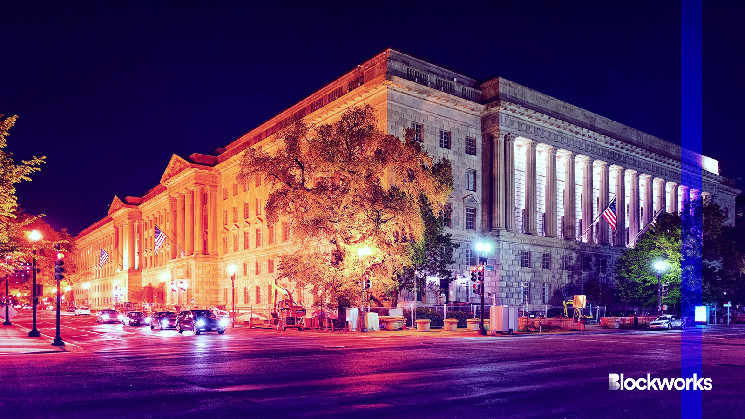Businesses and professional traders that receive over $10,000 worth of cryptocurrencies will need to report their transactions to the Internal Revenue Service.
Those who fail to comply may be guilty of felony offenses.
This reporting requirement, which became effective Jan 1, was initially part of Section 6050I of the Infrastructure Investment and Jobs Act, passed in Congress in November 2021.
Despite the potential legal jeopardy, there has been little guidance and clarification from the IRS around who is actually subject to reporting obligations.
This has raised concerns among traders, both amateurs and professionals, using decentralized finance protocols, which do not have a physical address or social security number, over whether the law applies to them.
I was unable to get the address and social security number of Uniswap which I swapped my ETH to ERC-20 token through, nor the protocol which gave me rewards for staking the token after.
Please advise. https://t.co/hIbpW8zS3N
— Will (@WClementeIII) January 2, 2024
Shehan Chandrasekera, the head of tax strategy at CoinTracker told Blockworks that 6050I applies to persons — could be individuals or businesses — who are in a “trade or business.”
“In simple terms, they need to run some type of activity in a business manner,” Chandrasekera said. “If you are a simple crypto investor (the majority of crypto users in the US), you don’t have a trade or business. Therefore, you have no impact from 6050I.”
In order to determine whether a DAO contributor falls under a “trade or business,” some questions to consider could include:
- Is contributing to the DAO your full-time, self-employed job?
- Is this your main source of income?
- Do you do this full-time throughout the year?
“If the answer is “yes” to all these above (there could be other qualitative questions depending on the situation), you run a “trade or business” and could be subject to 6050I,” Chandrasekera said.
Similar logic can be applied to airdrop farmers, for example. If it is a person’s full-time occupation to farm airdrops, they are likely to be subject to reporting obligations, though a person who receives a one-off airdrop allocation is likely not subject to reporting obligations.
In the case of stakers, Chandrasekera explains that stakers on major exchanges who receive rewards but have a separate main source of income would likely not be required to report to the IRS. On the other hand, a person or organization that runs a professional staking pool and earns commissioned income will be subject to reporting requirements.
Who really has a “Trade or business” here and is subject to 6050I reporting?
Taxpayer A: stakes on a major exchange and receives X amount of rewards each year. He has an FT job (main source of income).
Taxpayer B: Runs an organized/professional staking pool. Promotes the pool…
— Shehan (@TheCryptoCPA) January 3, 2024
Still, the details of how individuals and traders engage in staking could also influence whether they have reporting obligations, Cameron Browne a certified public accountant (CPA) and partner at Darien Advisors, a Web3 crypto tax advisory practice, told Blockworks.
“If they’re trading through an entity and claim $10K in yield farming rewards, potentially. If they’re trading only as individuals, then not,” Browne said. “I have a few clients that trade through partnerships/corporations/s corporation, that would certainly subject them.”
As for now, there has not been clarification from the IRS on what is considered trade or business activity and what is not.
“This is a subjective standard that has connections to so many other sections of the IRS code. Some court cases have clarified this for facts related to the case. But, there’s no bright line rule,” Chandrasekera said.
This ambiguity has led crypto think tank Coin Center to take matters into their own hands. Already in June 2022, Coin Center filed a court challenge against the U.S. Treasury Department, arguing the IRS provisions are unconstitutional.
“The really tricky nature of this requirement will become clear when someone makes such a donation but does so anonymously by simply sending us [bitcoin or ether] to our public addresses. Who could we possibly list as the sender in that case? These are all questions the Treasury Department has yet to answer,” Jerry Brito, the executive director of Coin Center, wrote in a blog post.
Brito adds that the Coin Center team will continue to fight the law in court whilst determining how to be compliant for the time being.
Outside of crypto, many taxpayers prefer to be treated as a trade or business as it enables them to deduct business-related expenses, Chandrasekera noted, something that does not apply to what the IRS views as “hobbies.”
Read the full article here

